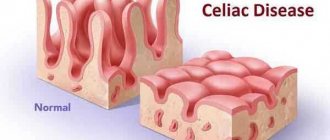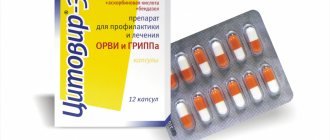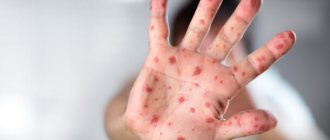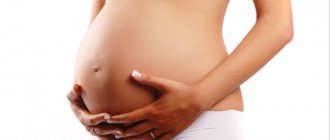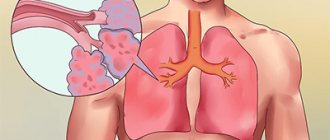In the context of a new powerful outbreak of Covid, more and more Russian regions are introducing mandatory vaccination against coronavirus for certain groups of citizens (primarily those who, due to their occupation, are actively in contact with others and can intensively spread the infection). However, as with any medical product, there are contraindications for vaccinations against COVID-19. Their list is determined by the instructions for each vaccine. Over time, it may change and be updated by developers with subsequent official registration of “edits.” In addition, methodological recommendations from the Ministry of Health have been developed on the procedure for vaccination with one or another drug. They also contain important points about when vaccination is not done (in addition to direct medical contraindications).
Komsomolskaya Pravda has collected and provides data that is relevant today.
“SPUTNIK V”: WHO SHOULD DELAY WITH THE VACCINATION
Contraindications are:
- hypersensitivity to any component of the Sputnik V vaccine or another vaccine containing similar components (this is determined by the doctor in the vaccination room when examining and interviewing the patient before vaccination);
- history of severe allergic reactions (these include: Quincke's edema, anaphylactic shock);
- acute infectious and non-infectious diseases - vaccination is carried out 2-4 weeks after recovery. For mild ARVI and acute infectious diseases of the gastrointestinal tract, vaccination can be done after the temperature has normalized;
- exacerbation of chronic diseases - vaccination is carried out 2-4 weeks after the onset of remission;
- pregnancy and breastfeeding. Important: as the head of the Sputnik V development team, academician Alexander Gunzburg, said, in the very near future it is planned to make additions to the instructions allowing vaccination of pregnant women;
- age up to 18 years. Note: according to Moscow Deputy Mayor for Social Development Anastasia Rakova, clinical trials of Sputnik V for adolescents 12-17 years old will start in the capital from the beginning of July.
! There are also certain contraindications for administering the second component of the vaccine. The patient is given a medical exemption from the second Sputnik injection if severe post-vaccination complications occur after the first injection. These include:
- anaphylactic shock,
- severe generalized allergic reactions,
- convulsive syndrome, temperature above 40°C, etc.
If, after the first injection, antibodies have not formed, and the second component of Sputnik is contraindicated, the doctor may decide to carry out a full course of vaccination with another vaccine - EpiVacCorona or CoviVac, the deputy director for clinical and analytical work of the Central Research Institute of Epidemiology told KP Rospotrebnadzor, Doctor of Medical Sciences, Professor Natalya Pshenichnaya. “Re-vaccination with another drug is possible no earlier than 3 months after the administration of a dose of the previous vaccine to which an allergic reaction occurred,” the expert clarified.
Grodno University Clinic
1. Vaccination tactics
1.1. How is the vaccination against COVID-19 planned in our country?
According to the National Action Plan for vaccination against COVID-19 infection in the Republic of Belarus for 2021-2022, approved by the Deputy Prime Minister of the Republic of Belarus Petrishenko I.V. 02/22/2021, 4 stages of vaccination against COVID-19 are planned.
Vaccination is currently underway. The first stage began with the formation of protection for medical and pharmaceutical workers, as well as social and educational workers, as well as adults living in institutions with round-the-clock conditions.
At the next stage, it is planned to vaccinate people at high risk of severe COVID-19 - people aged 60 years and older, people with chronic diseases.
At the third stage, vaccination will be carried out for people who have a higher risk of contracting COVID-19 infection compared to the rest of the population due to their professional activities (workers in trade, catering, consumer services, transport, cultural institutions, sports institutions and others), workers government bodies ensuring the security of the state and the livelihoods of the population.
And then vaccination will be offered to the rest of the population who do not have the above risks.
The timing of these stages will depend on the time of receipt of vaccine batches (vaccine production) and the readiness of healthcare organizations to carry it out.
1.2. Can you get COVID-19 after receiving one or two components of the vaccine, and can you then spread the virus to other people?
Individuals who receive the vaccine cannot become ill with COVID-19 or shed the SARS-CoV-2 virus from receiving the vaccine because the vaccine does not contain live virus. The Gam-COVID-Vac vaccine was obtained using a biotechnological method in which the SARS-CoV-2 virus, which is pathogenic for humans, is not used.
Considering that after the first dose of the vaccine is administered, the body needs time to develop specific immunity, you can become infected with the virus in the days after vaccination and in the days preceding vaccination. Full specific immunity is formed in 92% of vaccinated people 7-21 days after administration of the second component of the vaccine
Getting a second dose of the vaccine is also important because it provides the greatest possible protection against developing COVID-19 due to a stronger and more mature immune response.
Vaccination forms the individual protection of the vaccinated person, preventing the occurrence of the disease, its severe course and unfavorable outcome. However, there is only limited evidence that vaccination reduces the risk of asymptomatic COVID-19 in cases of possible infection, which are the forms of infection that contribute to the spread of infection in the population.
It is extremely important that until the end of the pandemic, everyone who gets vaccinated continues to follow precautions such as social distancing, wearing respiratory protection, washing hands, and avoiding crowded areas.
1.3. How long does the protection last?
There is no clear answer yet to the question about the duration of protection. Currently, there is evidence that immune protection lasts for at least 9 months and, possibly, according to the results of mathematical modeling, up to 2 years, that is, at least the same amount of time as immunity after an illness. But thanks to vaccination, a tremendous advantage is provided, since the vaccine allows you to build immunity without illness and the possible development of complications. In addition, post-vaccination immunity is expected to be stronger than post-infection immunity because the immune response to the vaccine is more selective and potent than during natural infection.
As part of the post-registration clinical studies, it is planned to monitor vaccinated volunteers for 2 years in order to obtain the necessary information to confidently answer questions about the characteristics of the immune defense being formed.
1.4. How does the Gam-COVID-Vac vaccine work?
The Gam-COVID-Vac vaccine is developed based on recombinant viral particles of human adenovirus serotype 26 (first component) and serotype 5 (second component), which is a vector. Changes have been made to the genetic structure of this adenovirus so that it cannot cause infection in humans.
The adenovirus carries the S protein gene of the SARS-CoV-2 virus, which allows the vector virus to produce coronavirus spike proteins. These proteins are located on the surface of the virus and play a leading role in the infection mechanism.
Vaccination trains the human body's immune system to recognize the styl protein and produce an immune response, which will prevent the development of infection if the virus enters the body in the future.
The vaccine induces both humoral and cellular immunity against coronavirus.
1.5. What is the goal for COVID-19 vaccination coverage?
According to the National Action Plan for vaccination against COVID-19 infection in the Republic of Belarus for 2021-2022, it is planned to cover at least 60% of the population of both the country as a whole and in each region with vaccinations.
Vaccination forms the individual protection of the vaccinated person, prevents the occurrence of the disease, its severe course and unfavorable outcome. But if the population coverage is less than 60%, then we will not be able to form “collective protection” and will not be able to influence the intensity of the spread of the virus. Currently, research continues and it is possible that the task may change when new data is obtained.
1.6. Our country is studying circulating variants of the virus. Does this system allow us to determine the presence of mutated strains in circulation?
Variants of the SARS-CoV-2 virus circulating in our country are being studied at the Republican Scientific and Practical Center for Epidemiology and Microbiology. Here, the virus is isolated and a portion of the genome is sequenced, which makes it possible to determine the presence of mutations.
Cases of infection with the British strain of COVID-19 have been detected in Belarus. Belarusian specialists found the first samples of the British strain in people arriving from abroad - Poland, Ukraine, Egypt. Positive samples were obtained from persons infected in the country.
1.7. Does vaccination using the Gam-COVID-Vac vaccine protect against infection with mutated variants of the SARS-CoV-2 virus currently known?
Research in this direction continues. There is no information that the formed post-vaccination immunity will not prevent infection with mutated strains.
In the current period of research, scientists have not identified escape mutants that truly evade the action of neutralizing antibodies. So far, vaccine production technology uses the full-length spike protein format. It is difficult to imagine such a situation where a virus strain completely “escapes” the immune system.
2. Vaccination appointment
2.1. What are the intervals for planning for immunization after a coronavirus infection?
Vaccination can be done 3-6 months after suffering from COVID-19 (regardless of the severity of the disease).
A minimum interval of 3 months is advisable for persons who have a high risk of infection with mutated variants of the virus that have a high potential for spread (persons engaged in raising fur animals, persons traveling to other countries (employees of the Belavia campaign and others).
If COVID-19 developed after the introduction of the first component, but the second component was not introduced, then its administration can be planned no earlier than 6 months after the infection.
The vaccination course must be completed, because the introduction of one component and the infection may not have formed full-fledged long-term protection. Currently, research in this direction continues.
2.2. If, in the interval between the administration of the first and second components, an acute disease or exacerbation of a chronic disease occurs.
The introduction of the second component must be carried out after recovery in an acute disease or the beginning of the remission stage in a chronic disease. In individual cases, it is possible to provide for the introduction of the second component 1-4 weeks after recovery in an acute disease or the beginning of the remission stage in a chronic disease (depending on the severity of the disease). It is necessary to take into account the risk of COVID-19 and the risk of its severe course.
The maximum interval between the administration of components is not regulated.
2.3. How advisable is it to conduct a test for the presence of antigen or antibodies to the SARS-CoV-2 virus?
There is no advisability of testing for the presence of antigen or antibodies to the SARS-CoV-2 virus before vaccination.
2.4. If a test for the presence of antibodies was carried out (for other reasons) and there is evidence of the presence of Jg G (qualitative test) or titers not lower than the protective Jg G (quantitative test), is vaccination prescribed?
The presence of a certain amount of virus-neutralizing IgG antibodies to SARS-CoV-2 in those who have recovered does not guarantee protection against re-infection 3-6 months after a previous infection, therefore vaccination is also indicated for this category of the population. At the same time, the introduction of the vaccine will allow the formation of more durable immunity.
The risk of re-infection in the next 3-6 months after illness is low. According to researchers, the majority of those who have recovered from the disease maintain a protective immune response for 90 days after the illness. After this time, it is advisable to schedule vaccination.
2.5. Are allergic reactions in the past to the administration of any medications or foods a contraindication to vaccination?
Vaccines, like any other medicine, can cause allergic reactions ranging from mild to severe in people who are very sensitive to the active substance or any of the components of the vaccine. Safety data obtained from clinical trials do not indicate any increased risk of an allergic reaction, but given the limited number of vaccine doses administered to date, allergic reactions are very rare (meaning less than 1 in 10,000 vaccinated individuals). individuals) still cannot be excluded (WHO, COVID-19 Vaccine Clarification). As a general rule, when using any parenterally administered vaccine, immediate medical attention should be provided if required and post-vaccination observation ensured for at least 30 minutes.
2.6. What are the contraindications to administering the vaccine in people with chronic diseases?
Contraindications to vaccination are:
- exacerbation of a chronic disease. In this case, the appointment of a preventive vaccination is possible 2-4 weeks after remission;
- taking medications that suppress the function of the immune system (for vaccination, you must stop taking such medications at least 1 month before and after vaccination);
- autoimmune diseases, malignant neoplasms (vaccination may pose a risk for patients with this pathology, the possibility of vaccination of these patients is being studied).
The General Characteristics of the drug states that in the presence of chronic diseases, vaccination is carried out “with caution.” The patient must be on basic therapy, adhere to it, and be in stable remission - this is the main condition for vaccination. In such situations, admission to vaccination can be agreed upon with the attending physician (with a specialist in the profile of chronic pathology). The decision to vaccinate each patient should be based on a benefit-risk assessment.
2.7. Is it necessary to conduct laboratory tests before administering the vaccine (OAK, OAM, BAC)?
The appointment of vaccination for each patient is carried out by a doctor after interviewing him, medical examination and studying his medical history.
Laboratory and/or diagnostic tests may be required in some cases for patients with chronic pathology in order to assess the intensity (period) of the course of a chronic disease.
At this stage, vaccine manufacturers do not indicate the need for routine laboratory testing before vaccination.
2.8. How to vaccinate first-level contacts?
Persons classified as first-level contacts can be vaccinated no earlier than the end of the observation period, in the absence of clinical manifestations of the disease. Their preliminary testing for the presence of antigen or antibodies is impractical.
2.9. How are post-vaccination reactions recorded and investigated? How to monitor vaccinated people?
The system for monitoring vaccinated people and monitoring post-vaccination reactions is established by the Sanitary Norms and Rules “Sanitary and Epidemiological Requirements for the Transportation, Storage and Use of Immunobiological Medicines, Preventive Vaccinations, Identification, Registration and Investigation of Adverse Reactions after Preventive Vaccinations”, approved by a resolution of the Ministry of Health of the Republic Belarus dated December 02, 2013 No. 114.
To prevent serious adverse reactions to preventive vaccinations, the medical worker of the organization who carried out the preventive vaccination must monitor the patient who received the preventive vaccination for 30 minutes, and then in the general procedure for providing medical care to patients.
After (during) medical observation, in the event of detection of adverse reactions and diseases registered with diagnoses and within the time limits established by the list of serious adverse reactions to preventive vaccinations, subject to individual registration by health care organizations, and the timing of their detection, they are registered and investigated in accordance with TYPE requirements.
2.10. What are the age restrictions for using the Gam-COVID-Vac vaccine?
According to the instructions for medical use (General characteristics of the medicinal product) and the package insert: information for the patient, the Gam-COVID-Vac vaccine is indicated for the prevention of a new coronavirus infection (COVID-19) in adults over 18 years of age.
The above documents have been approved by the Ministry of Health of the Republic of Belarus.
2.11. What are the tactics of immunization with other vaccines (routine and for epidemiological indications) in relation to vaccination against COVID-19? How soon can I get vaccinated against COVID-19 after vaccination with another vaccine? How long after immunization against COVID-19 can I be vaccinated with other vaccines? Is it possible to simultaneously vaccinate against COVID-19 and against other infections in one visit? Is it possible to do other vaccinations between the introduction of 1 and 2 components?
There are currently no data on coadministration with other vaccines. WHO recommends that countries continue to conduct immunogenicity and safety studies when administered concomitantly with other vaccines (including influenza and pneumococcal vaccines) in adults. Once sufficient data is available, WHO will make recommendations on this issue. Pending such data, a minimum interval of 2-4 weeks should be maintained between administration of the COVID-19 vaccine AND any other vaccine (WHO COVID-19 Vaccine Clarification).
3. Vaccine administration technique
3.1. How long does it take to defrost vaccine components before administration?
Experience has shown that this time approximately does not exceed 30 minutes at room temperature.
3.2. What is the procedure for using temperature indicators in refrigeration equipment (freezers)?
Loggers, temperature recorders and other electronic devices that have passed state verification can be used to record the storage temperature of vaccines. In accordance with the requirements of part two of paragraph 23 of the Good Practice for Storage of Medicines, approved by Decree of the Ministry of Health of the Republic of Belarus dated October 23, 2021 No. 88 (hereinafter referred to as NPH), when storing thermolabile medicines, it is necessary to ensure the temperature conditions indicated on the packaging of the medicine, and its constant monitoring in accordance with paragraph 15 of the NPH. Part five of paragraph 15 of the NPH stipulates that equipment (measuring instruments) for temperature control should be placed, based on the results of temperature mapping analysis, at the points of the most significant temperature fluctuations.
3.3. What is the maximum storage temperature for the Gam-COVID-Vac vaccine?
Equipment intended for storage and transportation of the Gam-COVID-Vac vaccine must provide a temperature of minus 18°C and below during the entire period of transportation and storage at any permissible load level.
3.4. Is it permissible to store vaccines and cold packs together in one freezer (chest)?
Cold elements can be placed with medications in such a way that there is no direct contact with them.
“POSSIBLE, BUT WITH CAUTION”
For a number of severe chronic diseases, Sputnik V, as stated in the instructions, “is used with caution.” This means that in the vaccination office, in case of doubt, the patient can be referred for a preliminary consultation with a specialized attending physician (urologist, endocrinologist, neurologist, etc.). Let us clarify once again: these diseases themselves are not an “automatic” contraindication to vaccination. A medical exemption is given if the condition of a particular patient is unstable, and doctors believe that vaccination should be abstained at the moment.
Vaccination with Sputnik is carried out with caution for the following diseases:
- chronic liver and kidney diseases,
— endocrine diseases: severe dysfunction of the thyroid gland and diabetes mellitus in the stage of decompensation,
- severe diseases of the hematopoietic system,
- epilepsy and other diseases of the central nervous system (CNS),
- acute coronary syndrome, acute cerebrovascular accident,
- myocarditis, endocarditis, pericarditis (that is, inflammatory processes in the tissues of the heart).
False and true contraindications
In addition to the objective reasons listed above for complete or temporary refusal of vaccination, frankly subjective reasons are often given that cannot be considered grounds from a medical point of view. They are usually caused by prejudice against vaccination in general or about a particular child. From medical practice, we can derive a list of typical “reasons” that are usually cited by those who do not want to vaccinate themselves or their child:
- prematurity;
- anemia;
- mild illnesses without fever;
- dysbacteriosis;
- stable neuralgia;
- congenital defects, for example, allergies in relatives;
- complications after vaccination in other family members.
We have given only the main “excuses”; in real practice there are many more of them. In principle, some of them can be taken into account, and the doctor can postpone the vaccination, but each case must be considered separately. I would like to remind you once again that mandatory vaccines protect your child from very serious diseases, and your indecisiveness or “principles” can ruin his life.
In conclusion, we summarize: true contraindications to the administration of vaccines can only be those indicated in official documents and instructions for vaccines - only they can and should be guided by a doctor.
“ASSESS THE BENEFITS AND RISKS RATIO”
For some diseases, vaccination may pose a risk, according to the instructions for Sputnik V. However, coronavirus can often cause even greater harm to such patients. Therefore, “the decision to vaccinate should be based on an assessment of the balance of benefit and risk in each specific situation,” the document notes. This careful assessment should be carried out before deciding to vaccinate for:
— cancer patients;
- patients with autoimmune diseases.
In the latter case, stimulation of the immune system can lead to an exacerbation of the disease, the instructions emphasize. Great care should be taken in patients “with autoimmune pathology that tends to develop severe and life-threatening conditions.”
And one more important point. Patients who receive immunosuppressive therapy, that is, suppress the immune system (cancer patients, people who have undergone organ transplants, with autoimmune diseases, etc.), may not develop a sufficient immune response, the authors of the instructions warn. Therefore, taking drugs that suppress the function of the immune system is contraindicated for at least one month before and after vaccination. Only the attending physician can make a decision about adjusting medication intake.
How to get a QR code?
In order to receive a QR code, you need a standard or full account on the mos.ru portal or on the unified portal of state and municipal services gosuslugi.ru.
You can get a QR code in your electronic medical record, in your personal account on the mos.ru portal and the unified portal of state and municipal services, on the website emias.info or in the specialized application “Government Services. Stop coronavirus”, as well as at the reception of the city clinic.
STAY IN TOUCH
If you have already been ill or had contact with sick people before vaccination
If a person who came for vaccination had contact with patients with Covid over the last 14 days or showed any symptoms of infection during this period, then the patient should be given a referral for a PCR test for COVID-19 or a rapid test for the presence of coronavirus SARS-CoV-2. This rule is contained in paragraph 6.2 of the Methodological Recommendations “Procedure for vaccination with the GAM-COVID-VAC vaccine against COVID-19 in the adult population.”
Based on the same point, persons who have recovered from Covid and have a positive antibody test result “are not vaccinated.” Note: based on the latest data, taking into account the spread of a new dangerous strain of coronavirus, doctors urge those who have recovered to get vaccinated 7-9 months after the disease. However, if you maintain a sufficient antibody titer (at least two, and preferably four norms, depending on the reference values of a particular test) and compulsory vaccination has been introduced in your region, then, strictly speaking, you have the right to insist that you are not subject to it. based on the specified paragraph of the Recommendations of the Ministry of Health.
Requirements for vaccination rooms and mobile vaccination points against coronavirus
Requirements for vaccination rooms and mobile points for vaccination against coronavirus differ from the standard ones. If the vaccination office or mobile site does not have what is specified in the Interim Recommendations, problems will arise during inspection.
Equipping a vaccination room for vaccination against coronavirus
Before immunizing the population, you should check that everything is in order. If something is missing, you need to buy products, furniture or medicine, and only then start vaccinating the population.
| Automated workstation | at least 1 |
| Automated nurse's workstation | 1 |
| Medical thermometer | at least 1** |
| Pulse oximeter | 1 |
| Blood pressure tonometer with cuffs | 1 |
| Medicine storage cabinet | 1 |
| Cabinet for storing medical instruments, sterile consumables | 1 |
| Medical couch | 1 |
| Medical table with markings by types of vaccinations | 1 |
| Bactericidal air irradiator of recirculating type | at least 1* |
| Disposable spatula | at least 1** |
| Freezer with a temperature of minus 18 °C or lower (if using a frozen drug) | at least 1** |
| Refrigerator for storing medicines | 1 |
| Thermal container or cooler bag with a set of cold elements | the number of cold elements depends on the characteristics of the thermal container or cooler bag |
| Container - puncture-proof container with a lid for disinfection of used syringes, swabs, used vaccines | at least 3** |
| Disposable needles for intramuscular injection | the number depends on the flow of people for vaccination |
| Disposable syringes with a capacity of 1, 2, 5, 10 ml with a set of needles | at least 1** |
| Tweezers | at least 1** |
| Scissors | at least 1** |
| Rubber band | at least 1** |
| Kidney-shaped tray | at least 1** |
| Container with disinfectant solution | at least 1** |
| Adhesive plaster, disposable towels, diapers, sheets, disposable gloves | at least 1** |
| Container for collecting household and medical waste | at least 1** |
| Laying emergency prevention of parenteral infections for primary health care, emergency care, specialized care and palliative care | 1 |
| Anti-shock styling with instructions for use | 1 |
| Infusion stand | 1 |
* Power is calculated based on the volume of the room
** The quantity is determined based on the volume of medical care
Equipping a mobile point for vaccination against coronavirus
Even higher requirements are placed on mobile points, despite the fact that they can be placed on the base of any vehicles. The point must have radio communications and a mobile subscriber kit for an automated navigation and dispatch control system with the ability to use a global navigation satellite system and give an alarm signal.
| Workplace of a doctor (paramedic) | 1 |
| Medical thermometer | at least 3* |
| Blood pressure tonometer with cuffs | 1 |
| Pulse oximeter | 1 |
| Medicine storage cabinet | 1 |
| Medical couch | 1 |
| Medical table | 1 |
| Mobile bactericidal air irradiator of recirculating type | 1** |
| Disposable spatula | at least 1* |
| Freezer with a temperature of minus 18 °C and below/thermal container with a set of cold elements (in case of using a frozen drug) | at least 1* |
| Refrigerator for storing medicines/thermal container with a set of cold elements | 1 |
| Thermal containers and cold elements for them | in case of emergencies related to the failure of freezing equipment or power supply failures |
| Container - puncture-proof container with a lid for disinfection of used syringes, swabs, used vaccines | at least 3* |
| Disposable syringes with a capacity of 1, 2, 5, 10 ml with a set of needles | at least 1* |
| Disposable needles (for intramuscular injection) | at least 1* |
| Tweezers | at least 1* |
| Scissors | at least 1* |
| Rubber band | at least 1* |
| Kidney-shaped tray | at least 1* |
| Container with disinfectant solution | at least 1* |
| Adhesive plaster, disposable towels, diapers, sheets, disposable gloves | at least 1* |
| Container for collecting household and medical waste | at least 1* |
| Laying emergency prevention of parenteral infections for primary health care, emergency care, specialized care and palliative care | 1 |
| Anti-shock styling with instructions for use | 1 |
| Language supporter | 1 |
| Disposable mouth dilator | 1 |
| Manual breathing apparatus (Ambu bag) | 1 |
| Air duct | at least 1* |
| Disposable medical gloves | the number depends on the flow of people for vaccination |
| Oxygen inhaler | 1 |
| Infusion stand | 1 |
* Quantity is determined based on the volume of medical care
** Power is calculated based on the volume of the room
“EPIVACCORONA”: NOT EARLIER THAN A MONTH AFTER ACHIEVEMENT OF CHRONIC DISEASES
Contraindications are:
- hypersensitivity to the components of the drug (in particular, to aluminum hydroxide and others);
- severe forms of allergic diseases;
— a reaction or post-vaccination complication to a previous administration of the EpiVacCorona vaccine;
- acute infectious and non-infectious diseases, chronic diseases in the acute stage - vaccinations are carried out no earlier than a month after recovery or remission. For mild ARVI and acute infectious diseases of the gastrointestinal tract, vaccination is carried out after the temperature has normalized;
— immunodeficiency (primary);
- malignant blood diseases and neoplasms;
- pregnancy and breastfeeding;
- age up to 18 years.
The vaccine is used with caution (for what this means, see the explanations in Sputnik above) for the following diseases:
- chronic liver and kidney diseases,
- severe dysfunction of the endocrine system,
- severe diseases of the hematopoietic system,
- epilepsy, strokes and other diseases of the central nervous system,
- diseases of the cardiovascular system (history of myocardial infarction, myocarditis, endocarditis, pericarditis, coronary heart disease).
The vaccine may pose a risk and is used after a physician has assessed the risk-benefit ratio for a particular patient:
- for primary and secondary immunodeficiencies,
- for autoimmune diseases,
- in patients with allergic reactions.
Is it true that you can win a car by getting vaccinated?
Yes. The capital has launched an additional program to encourage vaccination, which applies to all citizens over 18 years of age. It complemented the “Million Prizes” incentive campaign (#Let’s DefeatCOVIDTogether), which was valid for residents of the capital over 60 years of age.
Until July 11, 2021, those who receive the first component of the COVID-19 vaccine for the first time will be entered into a car drawing. Once a week, five cars worth approximately one million rubles will be raffled off.
A program to encourage vaccination of Russians over 18 years of age will be launched in the capital
STAY IN TOUCH
What else is important to know
Here are a few more important points from the document entitled “Standard Operating Procedure: Procedure for Vaccination against COVID-19 with the EpiVacCorona Vaccine in Adults”:
— On the day of vaccination, the doctor conducts a survey and examination of the patient with mandatory thermometry. At temperatures above 37 °C, vaccination is not carried out.
- Patients receiving immunosuppressive therapy (that is, drugs that suppress the immune system) and patients with immunodeficiency may not develop an adequate immune response.
— If the patient has had contact with COVID-19 patients within the last 14 days or if there are symptoms of infection during this period, a referral is issued for a PCR test for COVID-19 or for a rapid test for the presence of coronavirus SARS-CoV-2 (clause 7.3.2 of the document ).
— Those who have recovered from COVID-19 and persons who have positive test results for the presence of immunoglobulins (that is, antibodies) of classes G and M to the SARS-CoV-2 virus are not vaccinated (clause 7.3.3 of the document).
Issuance of a certificate of medical exemption from vaccination against COVID-19
If there are permanent or temporary contraindications to vaccinations, the patient is issued a certificate of medical contraindications to vaccination for a certain period. The presence of medical contraindications to vaccination is determined by the attending physician or a doctor of the specialty who determines contraindications against vaccination.
The decision to issue a certificate of medical exemption from vaccination against COVID-19 is made by the medical commission of the medical organization where the patient is being observed for a disease that is a contraindication. The certificate confirming that the patient has a medical exemption must reflect: the patient’s full name, date of birth, diagnosis, validity period and place of issue.
If you need a qualified and experienced lawyer to protect your rights and legitimate interests, contact the Kirpikov and Partners center.

